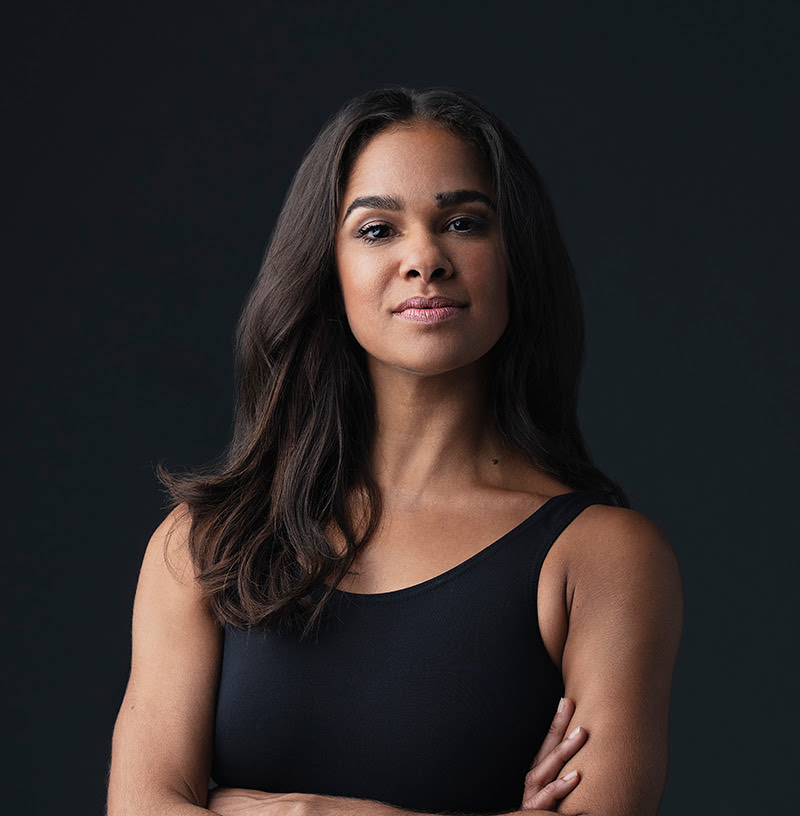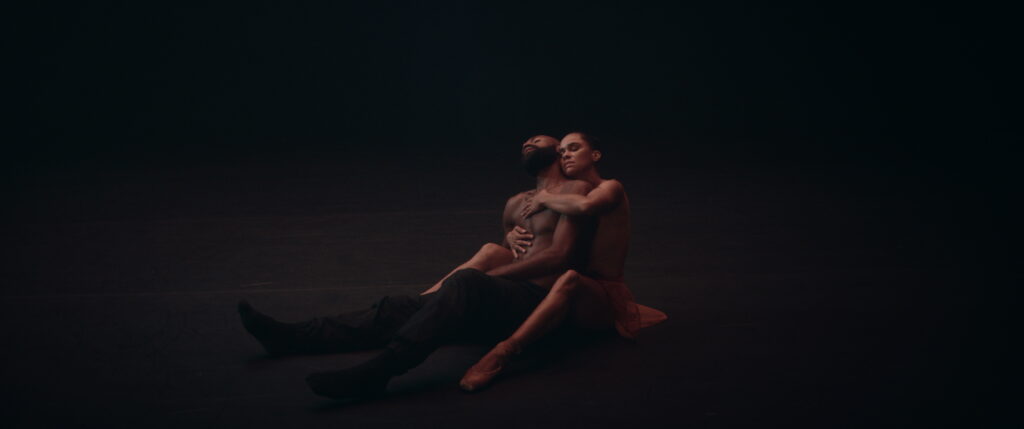In 2015, Misty Copeland made headlines when she became the first African American woman promoted to principal dancer at the esteemed American Ballet Theatre (ABT) in New York. In addition to her illustrious ballet career, Copeland has shared the stage with the late Grammy winner Prince, authored several books and served on former President Barack Obama’s Council on Fitness, Sports and Nutrition. And that was just the beginning.
Using her platform to promote change has been at the core of Copeland’s prolific career. Her latest project is Life in Motion Productions, a company she founded with her longtime friend and former ABT dancer Leyla Fayyaz. Their inaugural film, Flower, made its Oakland premiere on September 29 at the Paramount Theatre followed by a screening at the San Francisco Dance Film Festival on October 1 at the Brava Theater.

“Leyla and I felt a production company would be a perfect way to bring dance and art to a broad audience in an affordable way,” says Copeland. In Flower, art and activism combine effortlessly for a moving immersive experience.
The Power of Art Activism
Copeland’s 28-minute film made its world premiere at the Tribeca Film Festival in June and is directed by Lauren Finerman and executive produced by Nelson George (who directed Copeland’s documentary “A Ballerina’s Tale”). The film was shot on location in Oakland, California, and brings attention to the issues of gentrification, intergenerational equity and the housing crisis in the San Francisco Bay Area. These are issues Copeland can relate with herself, having spent much of her upbringing in Southern California living in motels with her single mother and five siblings.
Flower stars Copeland, who portrays Rose, a ballet teacher and waitress struggling to keep her home while supporting her mother Gloria (played by former Dance Theatre of Harlem and Complexions Contemporary Ballet member Christina Johnson), who is living with dementia. “I have spent so much time in Oakland because my husband was born and raised there,” says Copeland. “The history of social justice and art activism in Oakland is so rich and deep.”
The film features a creative team who have ties to Oakland and the Bay Area, including music by Raphael Saadiq and choreography by Alonzo King and Rich + Tone Talauega. It also co-stars Babatunji Johnson, a dancer with Alonzo King LINES Ballet in San Francisco. Turf dancing, a form of street dance that originated in Oakland, is also prominently featured.
To remain authentic to the story’s themes, Copeland and her team spent time speaking with people at local homeless encampments, shelters and the RV community. And to pay tribute to Black silent films of the 1920s there’s minimal dialogue in the film. The only people who speak are real locals affected by the housing crisis, “giving voice to the voiceless” as Copeland puts it.
“That was really eye-opening for me,” adds Copeland. “Finding that connection when speaking with these people and how you build resilience.”

Empowering the Next Generation
Despite the housing insecurity Copeland faced as a child, her life hit a turning point when she took her first ballet class on the basketball court of a Boys & Girls Club at the age of 13. Her teacher, Cynthia Bradley, noticed Copeland’s innate talent and took the young girl under her wing. Despite starting ballet at a late age by industry standards, Copeland was dancing on pointe in three months and performing professionally in just over a year. The rest, as they say, is history.
Now, in addition to her new production company, Copeland is paying it forward with the Misty Copeland Foundation to make ballet more accessible for young people of color. The Foundation’s after school dance education program, BE BOLD, recently celebrated its one-year anniversary and is now offered at 12 sites in the Bronx and Harlem, with the goal of expanding into more communities.
“I’ve developed my own framework, which is like a curriculum, but we’re calling it a framework to allow it the freedom to grow over time because we’re in these communities and learning about them and what they need,” says Copeland. “We don’t want to come in with these preconceived ideas of what we think they need.” In addition to receiving a free hour-long ballet class, another key component of the program is teaching children about the history of Black and Brown dancers, something often overlooked in ballet books.
A Growing Mission
As Copeland juggles her many projects, she’s also learning to strike a balance with another important role in her life: motherhood. Copeland gave birth to her son, Jackson, last year. “I’m an artist and Virgo, so sometimes I tend to want to have control over everything,” says Copeland with a laugh. “I’ve learned to find a good balance with my husband [Olu Evans], who is an incredible parent. I don’t have to be superwoman and do everything on my own. It’s about understanding that I have to be rested and healthy in order to be the best that I can be for my son.”
Maintaining that balance is key since Copeland doesn’t appear to be slowing down anytime soon. This month, she is co-hosting a new PBS series and also heading up the launch of the Greatness Wins women’s athletic line, which was introduced last year with Derek Jeter and Wayne Gretzky.
As for Life In Motion Productions, Copeland says the goal is that Flower will be the first in a series of short films that will focus on different social issues in various communities while highlighting dance forms that are pertinent to those areas. As Copeland says, “We want to focus on women of color throughout history whose stories haven’t been told yet.”







